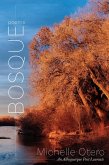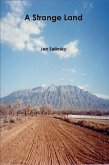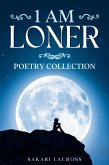Immigrants in Our Own Land & Selected Early Poems is a new, expanded edition of Jimmy Santiago Baca's best-selling first book of poetry (originally published by Louisiana State University Press in 1979). A number of poems from early, now unavailable chapbooks have also been included so that the reader can at last have an overview of Baca's remarkable literary development.
Immigrants in Our Own Land & Selected Early Poems is a new, expanded edition of Jimmy Santiago Baca's best-selling first book of poetry (originally published by Louisiana State University Press in 1979). A number of poems from early, now unavailable chapbooks have also been included so that the reader can at last have an overview of Baca's remarkable literary development. The voice of Immigrants will be familiar to readers of the widely praised Martín & Meditations on the South Valley and Black Mesa Poems (New Directions, 1987 and 1989), but the territory may not be. Most of the poems in this collection were written while the author was in prison, where he taught himself to read and write. All the poems are concerned with the incarcerated or the disenfranchised; they all communicate the sting from the backhand of the American promise. As Denise Levertov has noted, Baca "is far from being a naive realist," but of poverty and prejudice, of material that is truly raw, he "writes in unconcealed passion."
Immigrants in Our Own Land & Selected Early Poems is a new, expanded edition of Jimmy Santiago Baca's best-selling first book of poetry (originally published by Louisiana State University Press in 1979). A number of poems from early, now unavailable chapbooks have also been included so that the reader can at last have an overview of Baca's remarkable literary development. The voice of Immigrants will be familiar to readers of the widely praised Martín & Meditations on the South Valley and Black Mesa Poems (New Directions, 1987 and 1989), but the territory may not be. Most of the poems in this collection were written while the author was in prison, where he taught himself to read and write. All the poems are concerned with the incarcerated or the disenfranchised; they all communicate the sting from the backhand of the American promise. As Denise Levertov has noted, Baca "is far from being a naive realist," but of poverty and prejudice, of material that is truly raw, he "writes in unconcealed passion."
Dieser Download kann aus rechtlichen Gründen nur mit Rechnungsadresse in A, D ausgeliefert werden.



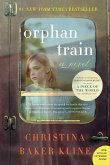
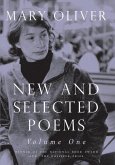
![Easy Noumenon: Early Poems [Revised Version] (eBook, ePUB) Easy Noumenon: Early Poems [Revised Version] (eBook, ePUB)](https://bilder.buecher.de/produkte/69/69981/69981766m.jpg)

